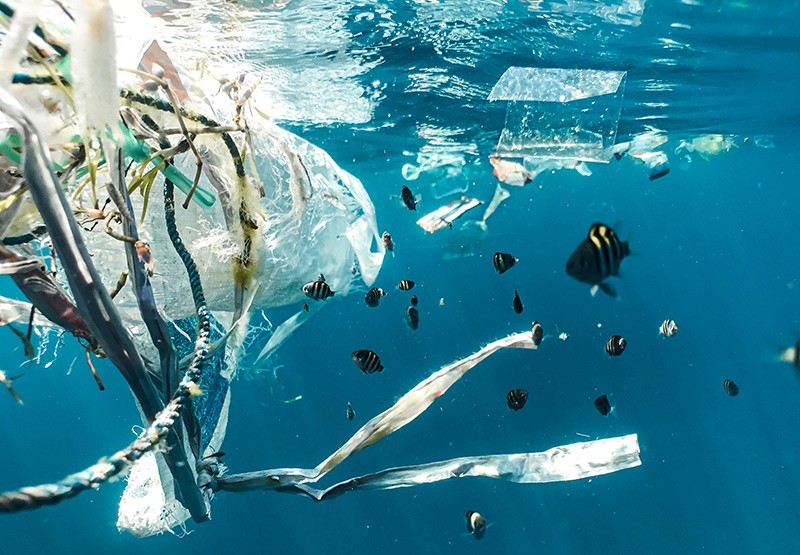Bringing together more than 600 heads of governments and businesses from around the world, the 8th Our Ocean Conference is taking place in Panama as an opportunity for the international community to promote their sense of responsibility and join hands to protect the ocean ecosystem. This is especially meaningful as the current water pollution is at an alarming level.

Photo: ouroceanpanama2023.gob.pa.
The Our Ocean Conference focuses on the problems facing the world's oceans. Among them, climate change and pollution to overfishing and mining, and waste are prominent issues. Delegates also focused on discussing the expansion of many marine protected areas to assure a sustainable ocean-derived "blue economy" and reduce stressors on an invaluable but at-risk resource.
Courtney Farthing, policy director at Global Fishing Watch, said that the conference "is key to maintaining political will on ocean action.". This is also an opportunity for countries to improve their understanding of the current state of the ocean and work together to find solutions and initiatives that can be widely applied.
Ocean ecosystems have long been seriously threatened by climate change, environmental pollution and overfishing and mining. The ocean covers about three-quarters of the Earth's surface and is considered a vital route for global trade. According to the World Wide Fund for Nature (WWF), many areas of the ocean are important for sharks, tuna, whales and sea turtles, and support billions of dollars in economic activity each year.
In fact, the general awareness of the people regarding the importance of protecting the environment, including the ocean ecosystem, has been enhanced. This is shown through a series of large and small conferences on the topic of marine conservation held in the past time. At the 15th Conference of the Parties to the Convention on Biological Diversity (COP15) in the Canadian city of Montreal in December 2022, 196 countries pledged to protect at least 30% of terrestrial and marine areas by 2023.
However, current efforts to protect the marine environment are still not enough as the ocean is calling for urgent help before a series of dangers from global warming and activities that pollute the marine environment. WWF also warned that oceans are facing new potential threats such as deep-sea mining - a nascent industry that can cause irreparable harm to fragile ecosystems in the deep sea.
In 2022, the world continues to see the temperature of the oceans rise to record highs.
This is an alarm bell about the serious consequences of climate change and global warming. Covering most of the Earth's surface, oceans play a critical role in regulating the climate. Oceans are the largest heat sink on the planet. They absorb 90% of the excess heat caused by climate change. Oceans are also a very efficient carbon sink, absorbing 23% of human-caused CO2 emissions. This is also contributing to the serious damage to the ecosystem under the ocean.
The discharge of waste causing pollution to the marine environment has not yet ended. According to estimates by the Organization for Economic Co-operation and Development (OECD), annual production of fossil fuel-based plastics is set to top 1.2 billion tonnes by 2060 while waste will exceed 1 billion tonnes. From small creatures such as shrimp, crabs, oysters to large species like whales, all are victims of plastic waste. Specifically, during the outbreak of the COVID-19 pandemic, the oceans had to "buckle" to bear a huge amount of medical waste with disposable medical masks or rubber gloves.
Experts stress the importance of concluding a global treaty on the conservation of the high seas, towards achieving the goal of protecting at least 30% of the world's oceans. Sustainable management of marine resources is an integral part of the post-COVID-19 socio-economic recovery process.
Ngoc Linh - Translated by NDO